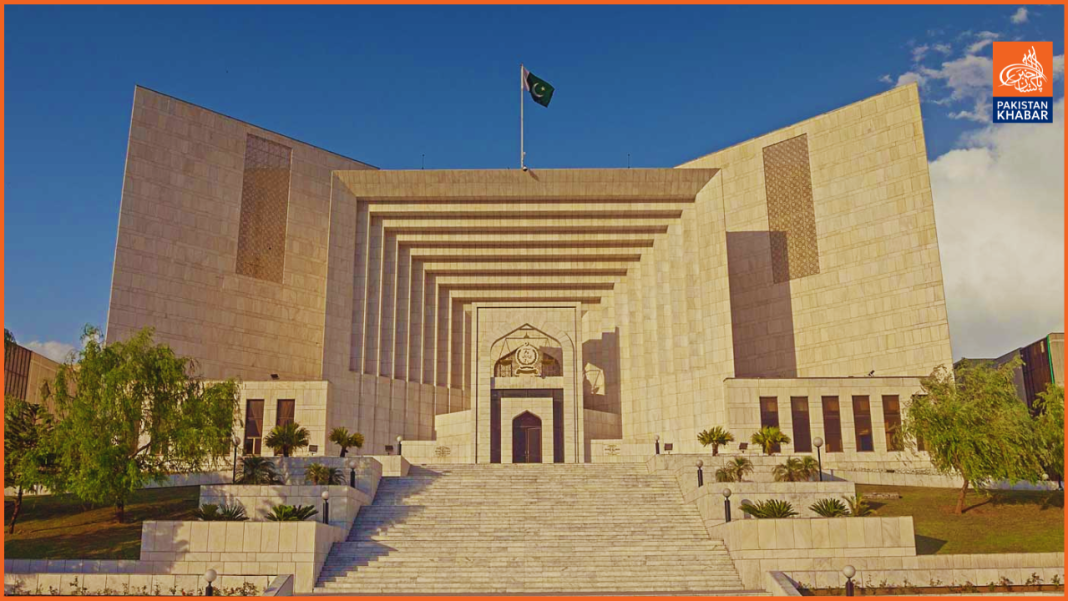The Supreme Court of Pakistan has postponed the hearing of a crucial case related to military court trials due to the unavailability of a seven-member larger bench. The hearings, originally scheduled for January 20 and 21, were removed from the court’s schedule by the Registrar’s Office, sparking concerns over the delay in addressing important constitutional issues regarding military court jurisdiction and the right to a fair trial.
The larger bench was set to examine whether military trials comply with constitutional guarantees of due process and justice.
Imran Khan’s Petition on Electoral Rigging to Be Heard
In a separate matter, a six-member constitutional bench, led by Justice Amin-ud-Din, will hear Pakistan Tehreek-e-Insaf (PTI) founder Imran Khan’s petition on January 20. The petition calls for an investigation into alleged electoral rigging. The bench will also hear a related petition by Sher Afzal Marwat on electoral fraud.
Arshad Sharif Murder Case Scheduled for Hearing
Justice Amin-ud-Din’s bench will also review the high-profile murder case of journalist Arshad Sharif. The case has garnered significant national and international attention, with calls for an independent investigation into his death.
Other Key Cases on the Supreme Court’s Agenda
- Development Funds: The bench will consider a suo motu notice regarding the allocation of development funds to assembly members.
- Ban on Student Unions: A petition challenging the ban on student unions will be examined, an important issue for youth activism and representation in educational institutions.
Civilian Trials in Military Courts Under Scrutiny
On January 16, 2025, the Supreme Court directed the Ministry of Defence to provide detailed data on civilian trials in military courts, excluding the case of Indian spy Kulbhushan Jadhav. Justice Amin-ud-Din Khan heads the bench handling intra-court appeals against military court rulings. The bench, which includes Justices Jamal Khan Mandokhail, Muhammad Ali Mazhar, Syed Hasan Azhar Rizvi, Naeem Akhtar Afghan, Musarrat Hilali, and Shahid Bilal Hassan, reviewed arguments concerning the application of military law to civilians.
During the proceedings, Ministry of Defence lawyer Khawaja Haris argued that fundamental rights are invalidated under Article 8, Section 3. Justice Naeem Akhtar raised concerns about legislative ambiguities, noting the lack of clarity in the inclusion of civilians under the Army Act’s term “any person.”
Justice Syed Hasan Azhar Rizvi emphasized the importance of reviewing trial records to ensure that military courts uphold fair trial standards.




